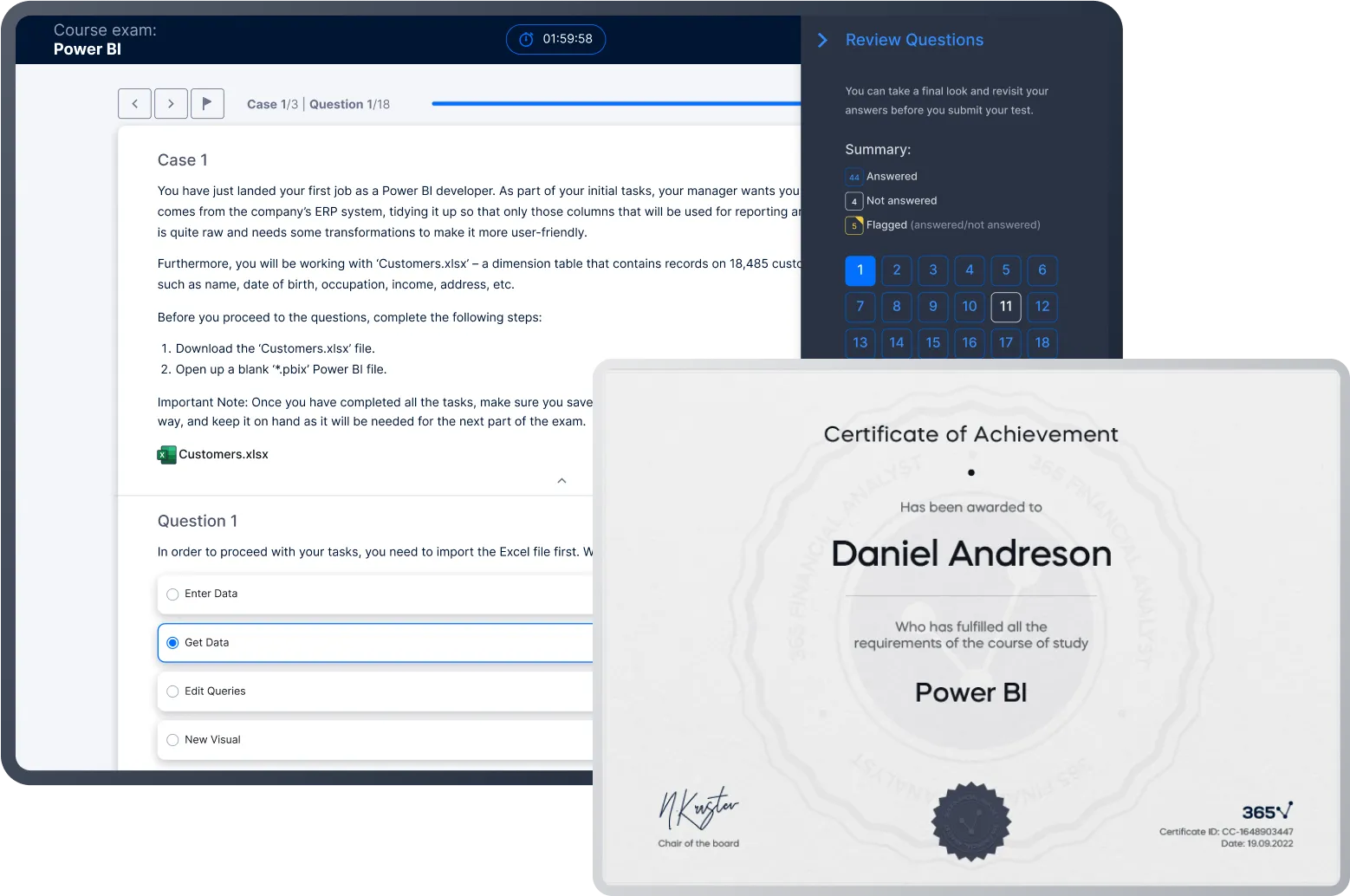Project Management
Master project management skills that enable you to develop a project from zero to one

Please note that this course is available only to subscribers who have reached level 6
What you get:
- 4 hours of content
- 20 Downloadable resources
- World-class instructor
- Closed captions
- Q&A support
- Future course updates
- Course exam
- Certificate of achievement
Project Management

Please note that this course is available only to subscribers who have reached level 6
What you get:
- 4 hours of content
- 20 Downloadable resources
- World-class instructor
- Closed captions
- Q&A support
- Future course updates
- Course exam
- Certificate of achievement
$99.00
Lifetime access

Please note that this course is available only to subscribers who have reached level 6
What you get:
- 4 hours of content
- 20 Downloadable resources
- World-class instructor
- Closed captions
- Q&A support
- Future course updates
- Course exam
- Certificate of achievement
What You Learn
- Be able to manage an entire project on your own
- Understand why project management is essential for any organization
- Carry out project management tasks according to established best practices
- Get professional project management templates that can be used in different professional settings
- Gain project management knowledge through comprehensive case studies
- Understand the project management role and the importance of delivery
Top Choice of Leading Companies Worldwide
Industry leaders and professionals globally rely on this top-rated course to enhance their skills.
Course Description
Curriculum
Topics
Course Requirements
- No prior experience or knowledge is required. We will start from the basics and gradually build your understanding. Everything you need is included in the course
Who Should Take This Course?
Level of difficulty: Beginner
- Everyone who is interested in project management
- Individuals who want to differentiate their professional profile and build up their business skills
Exams and Certification
A 365 Financial Analyst Course Certificate is an excellent addition to your LinkedIn profile—demonstrating your expertise and willingness to go the extra mile to accomplish your goals.

Meet Your Instructor

Ivan Vaptsarov
3 Courses
551 Reviews
3865 Students
Ivan is a PMP-certified project manager who holds a Bachelor’s degree in Business Administration and Management and a Master’s in Accounting and Financial Management from Bocconi University in Milan, Italy. He started his career as a consultant with Tefen Management Consulting. At Tefen, Ivan worked on multiple supply chain optimization and process excellence projects in the Oil & Gas and Pharma industries. In 2013, he joined AIG’s EMEA Project Management and Strategy team. As part of that unit, Ivan executed the company’s strategy in EMEA by establishing two shared service organizations covering a total of 700+ positions and 17+ countries. What is more, Ivan is a passionate project management educator. He has delivered live business trainings to multiple corporate clients and individuals and has been a guest lecturer in several universities. He has also delivered consulting services in project management.
What Our Learners Say
365 Financial Analyst Is Featured at
Our top-rated courses are trusted by business worldwide.